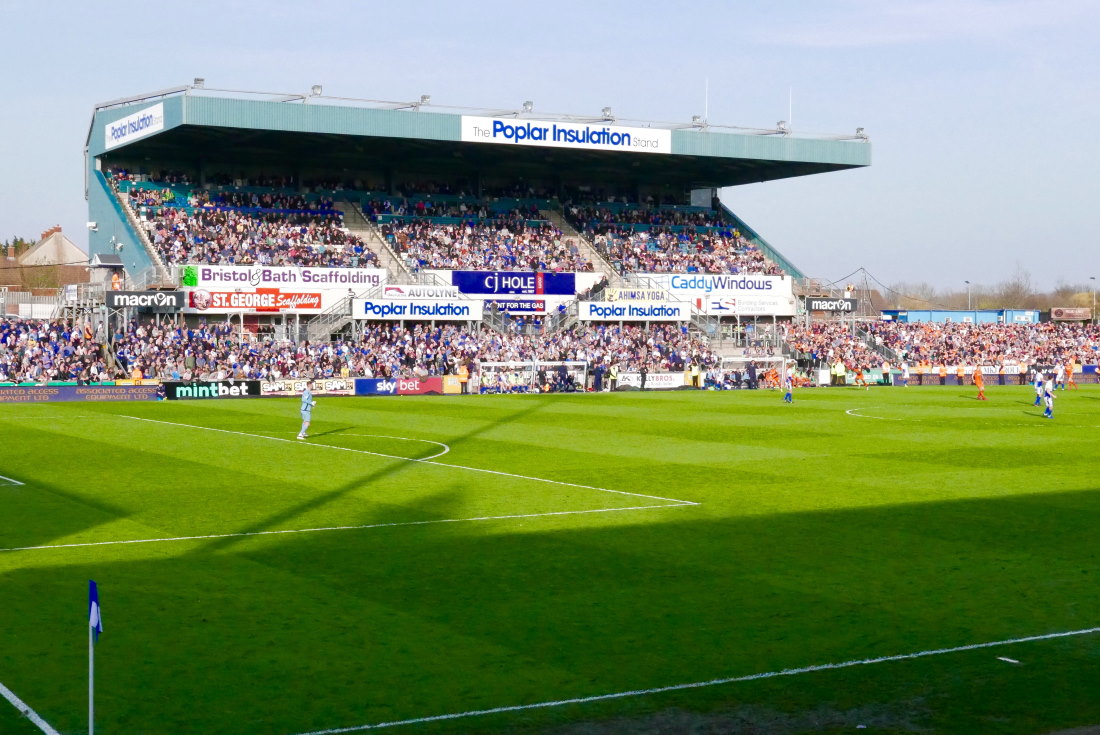
Key facts
Club: Bristol Rovers | Opening: 1921 | Capacity: 11,000
History and description
The Memorial Stadium has for most of its history been a rugby stadium being the home of the Bristol Bears.
The stadium opened on 24 September 1921. For a large part of its history it consisted of wooden stands. During the 1980s and 1990s several new stands were built by Bristol Rugby.
In 1996, Bristol Rovers moved to the Memorial Stadium, having played for most of its history at Eastville, which it had to vacate in 1986 due to financial difficulties. Following an exile of 10 years playing in Bath, the club came to an agreement with Bristol Rugby to share the Memorial Stadium in 1996.
In subsequent years, the club made several plans to redevelop the Memorial Stadium, but in 2011 presented plans to move to an entirely new ground at a site at the University of the West of England. This stadium, commonly referred to as UWE Stadium, would have a capacity of 20,000, but plans were shelved in 2017 following a dispute with Sainsbury’s that was going to build a supermarket at the site of the Memorial Stadium.
Plans has since shifted to redeveloping the Memorial Stadium again.
How to get to Memorial Stadium
The Memorial Stadium is located in the north of Bristol at just over 2 miles from Bristol’s city centre and slightly further from Bristol Temple Meads, the main railway station.
Various buses connect the stadium with the city centre and railway station, running across Gloucester Road, including bus 73, 75, and 76.
Address: Filton Avenue, Horfield, Bristol, BS7 OBF
Bristol Rovers Tickets
Bristol Rovers tickets can be bought online or at the club office at the stadium.
Tickets can also be bought at the stadium on the day of the match.
Expect to pay from £19.00 for the terrace behind the goal to £25.00 for a seat at one of the sides. Prices are increased with £3.00 for 6 top matches.
Useful Internet Links
Bristolrovers.co.uk – Official website of Bristol Rovers FC.
Visitbristol.co.uk – Official tourist guide to Bristol.
Photo credits: John Lord